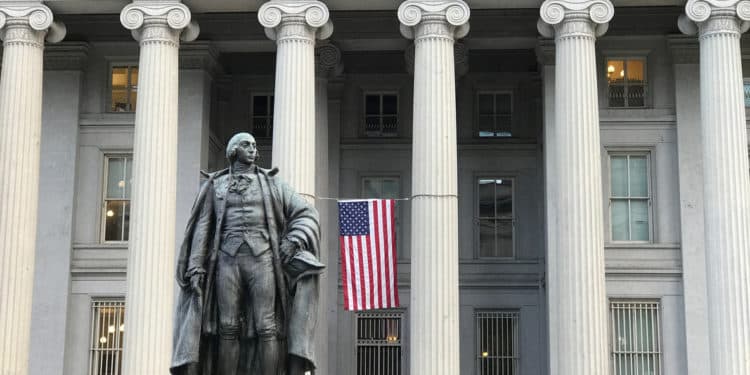As previously reported by WNN, the U.S. Department of the Treasury is currently drafting proposed rules to govern the recently established Anti-Money Laundering (AML) Whistleblower Program. On March 28, leading whistleblower attorney Stephen M. Kohn, a founding partner of the whistleblower law firm Kohn, Kohn & Colapinto (KKC) and Chairman of the Board of the National Whistleblower Center (NWC), sent a detailed letter to the U.S. Department of the Treasury outlining recommendations for the rulemaking.
In his letter, Kohn also highlighted the pivotal role the AML Whistleblower Program can play in the United States’ fight against corruption, as outlined by the Biden-Harris Administration’s United States Strategy on Countering Corruption. The Strategy “mandates that the Treasury Department, among other agencies, work with whistleblowers and other non-governmental actors to fight money laundering,” and “envisions that whistleblowers and other non-governmental actors will be fully incorporated into the war against corruption,” according to Kohn.
The whistleblower reward provisions of the Anti-Money Laundering Act of 2020 became law on January 1, 2021. The law established a whistleblower reward program largely modeled off the highly successful whistleblower programs of the U.S. Securities and Exchange Commission (SEC) and Commodity Futures Trading Commission (CFTC). However, the AML Act strayed from the Dodd-Frank Act, the law which established the SEC and CFTC programs, in a number of key ways which whistleblower advocates claim are undermining the program. Senate Bill 3316, cosponsored by Senators Charles Grassley (R-IA) and Raphael Warnock (D-GA), fixes two of the largest loopholes in the AML Act and is widely supported by whistleblower advocacy groups.
“Given the importance of combating money laundering and the central role that effective AML laws must play in effectuating the United States Strategy on Countering Corruption, the Treasury Department should publicly and aggressively support amendments to the AML whistleblower law that would harmonize that law with the highly effective Dodd-Frank Act,” writes Kohn in his letter. “Until these amendments are passed we strongly urge you to use your rulemaking authority to provide maximum protection for all AML whistleblowers.”
Kohn then offers a number of detailed recommendations to the Treasury Department outlining what the AML Whistleblower Program rules should include.
Kohn suggests that the Treasury Department draft a rule creating strict deadlines for making award decisions, and permitting an internal administrative appeal whenever a reward is denied. He explains that “[o]ne of the biggest complaints with whistleblower reward programs is the long delays. A case can languish within an administrative agency for years, and it is not uncommon for an agency to take 2-5 years to make a reward decision.”
Another recommendation Kohn makes is that the Treasury established a user-friendly whistleblower office with an information website. He points to the SEC’s Office of the Whistleblower website as a good working model. “Most potential whistleblowers do not understand their rights, and consequently high-quality publicly available information is always the most important first step for a successful program,” Kohn explains.
Kohn also recommends that the proposed rules “[e]xecute a Memorandum of Understanding with the IRS Criminal Investigations division, granting IRS CI investigatory authority (or joint authority) over all money laundering cases,” “[e]nsure interagency cooperation,” “[e]stablish criteria for granting an award that focuses on incentivizing whistleblowers to provide the U.S. government with high quality information,” “[w]ork directly with the IRS, CFTC, and SEC to assist whistleblowers in qualifying for rewards impacting money laundering under those programs,” and “[w]ork with international organizations and whistleblower advocacy groups to ensure that the rights of individuals to report money laundering crimes are understood outside the United States.”
In a comment to WNN, the Treasury Department’s Financial Crimes Enforcement Network (FinCEN) confirmed it was working on proposed rules for the program: “FinCEN is committed to working to implement the AML Act of 2020, including drafting rules to implement the whistleblower provisions of section 6314. FinCEN looks forward to creating a robust whistleblower program and to seeking public comment on a proposed rule.”
Read:
Kohn’s full letter to the Treasury
Treasury Department Drafting Rules for AML Whistleblower Program




